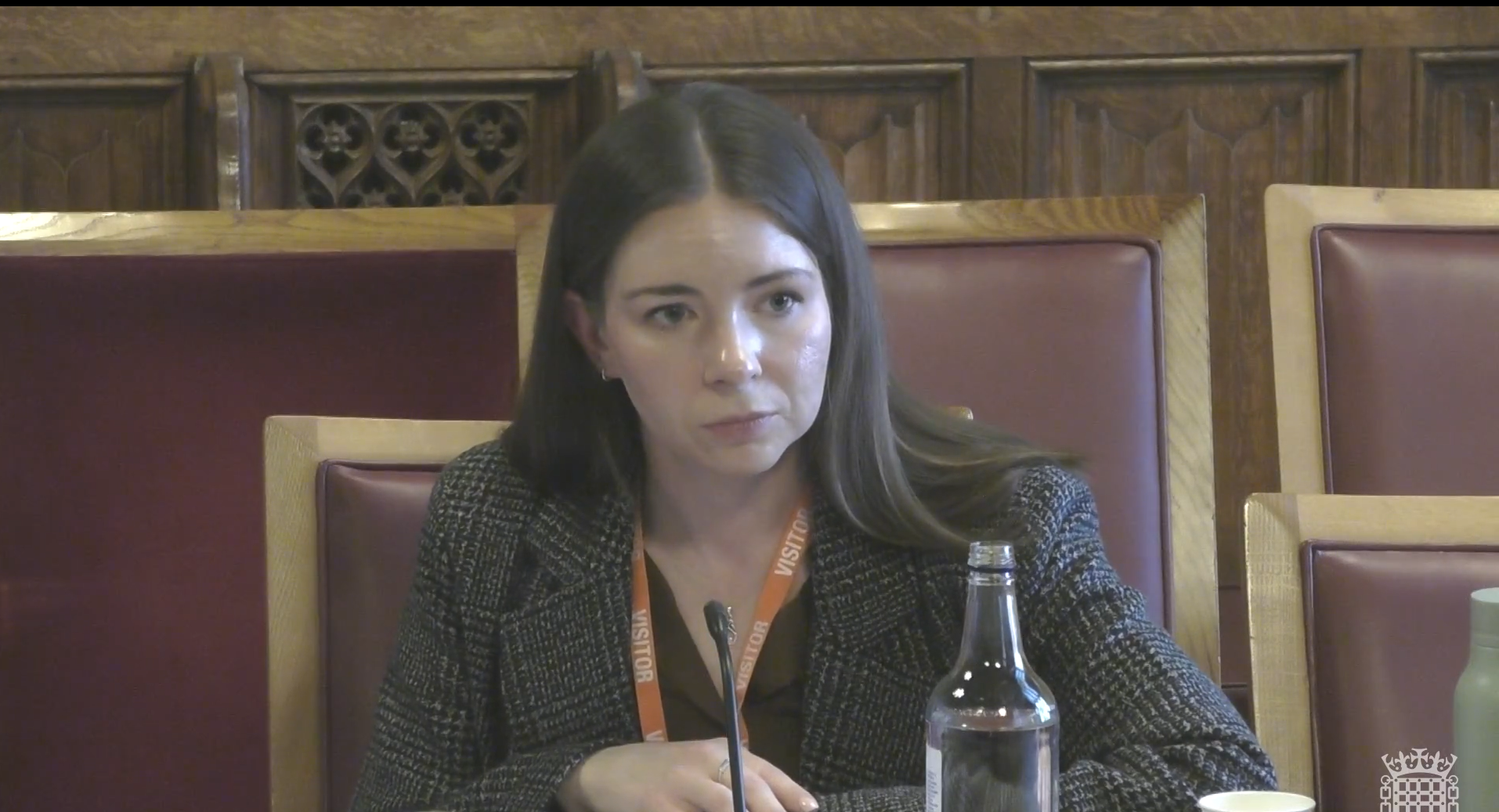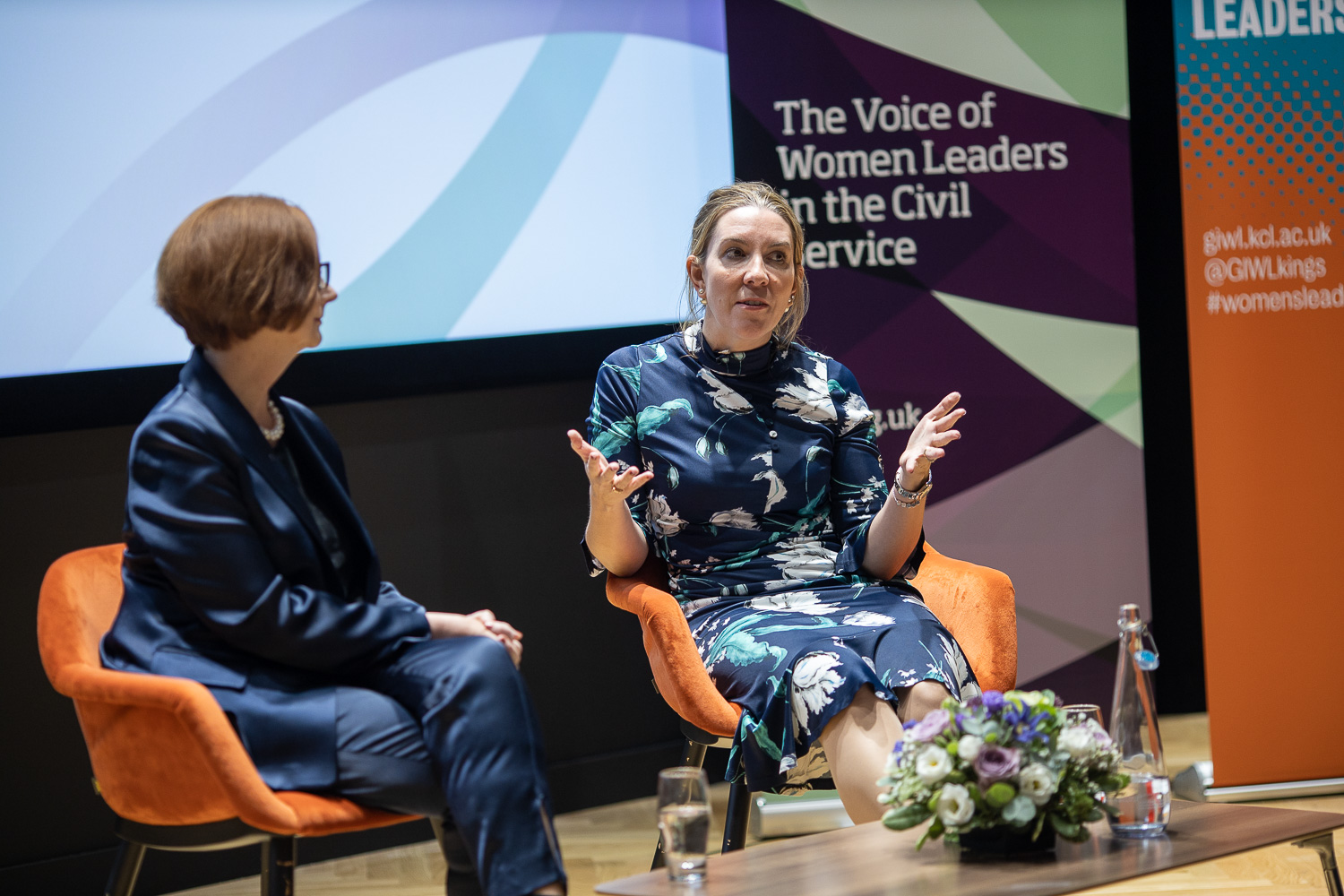Office attendance mandate “doesn’t make sense”, Crowley tells House of Lords Home-based Working Committee

FDA Assistant General Secretary Lauren Crowley gave oral evidence to the House of Lords Home-based Working Committee for its inquiry on remote and hybrid working.
Crowley appeared on a panel alongside TUC Equalities and Young Workers Policy Officer Alice Arkwright and UNISON’s Director of Political Strategy Maggi Ferncombe. The Committee had requested that the FDA provided evidence to the inquiry following the publication of the union’s report into hybrid working, ‘The future of office work in the civil service’ – a response to the government’s 60% office attendance mandate.
The report is informed by a survey of FDA members which received more than 7,000 responses, with 78% of respondents believing that the 60% attendance mandate had not been beneficial. Since the report’s publication, the FDA has been engaging with individual departments about its findings.
Outlining the benefits of hybrid working for the civil service, Crowley told the Committee:
“Hybrid working is one tool that could be really useful to the government’s Places for Growth Strategy, its strategy to increase the number of civil service roles outside of London… It enables them to widen the radius of the pool of people that they are able to recruit from, without having to significantly increase the physical footprint of the government estate. So, it is something that can help support increased diversity in talent outside of London.”
Discussing the FDA’s research into hybrid working, which also included a report on the issue from 2022, Crowley said:
“One of the areas where there was a particular difference in the members was around disability, there was a disparity between our disabled and non-disabled members, showing that disabled employees were much more likely to face difficulties as a result of a blanket attendance quota.
“Where the original research had shown us that hybrid working was very much welcomed by our members and helping our members, particularly those that are disabled, to work better and more effectively within government departments, a blanket mandate significantly worsened their work-life balance.”
Crowley added that it was “particularly disappointing that this government has continued that approach without dialogue with the unions or without any evidence that can see”, arguing that in the absence of such evidence “we have to conclude that the policy was really driven for political reasons”, citing “significant pressure from the media in particular”.
Outlining the FDA’s proposals for a more flexible approach to hybrid working policy, Crowley said:
“There shouldn’t be one percentage of attendance for 500,000 people across 200 employers, it doesn’t make sense and it doesn’t work. Each employer should be given the discretion to be able to establish and negotiate policy that works for them dependent on the area of work that they deliver and the people that they manage, and that will mean some accountability, some ground rules that are set at the top, as we have with all of our collective agreements.”
Latest news
-

“An outstanding leader with a proven track record” – FDA responds to Dame Antonia Romeo appointment
The FDA has welcomed the appointment of former Home Office Permanent Secretary Dame Antonia Romeo as Cabinet Secretary, following the departure of Sir Chris Wormald last week.
-

“New low” for government’s relationship with civil service – FDA responds following departure of Cabinet Secretary Chris Wormald
The FDA has responded to the announcement that Sir Chris Wormald has departed the role of Cabinet Secretary, with FDA General Secretary Dave Penman describing it as a “new low” for the government’s relationship with the civil service.
-

“Farcical” to wait until 2030 to make decision on restoration and renewal of parliament, says FDA
The FDA has responded to the latest publication of UK Parliament’s Restoration and Renewal Board, ‘Delivering restoration and renewal of the Palace of Westminster: the costed proposals.’